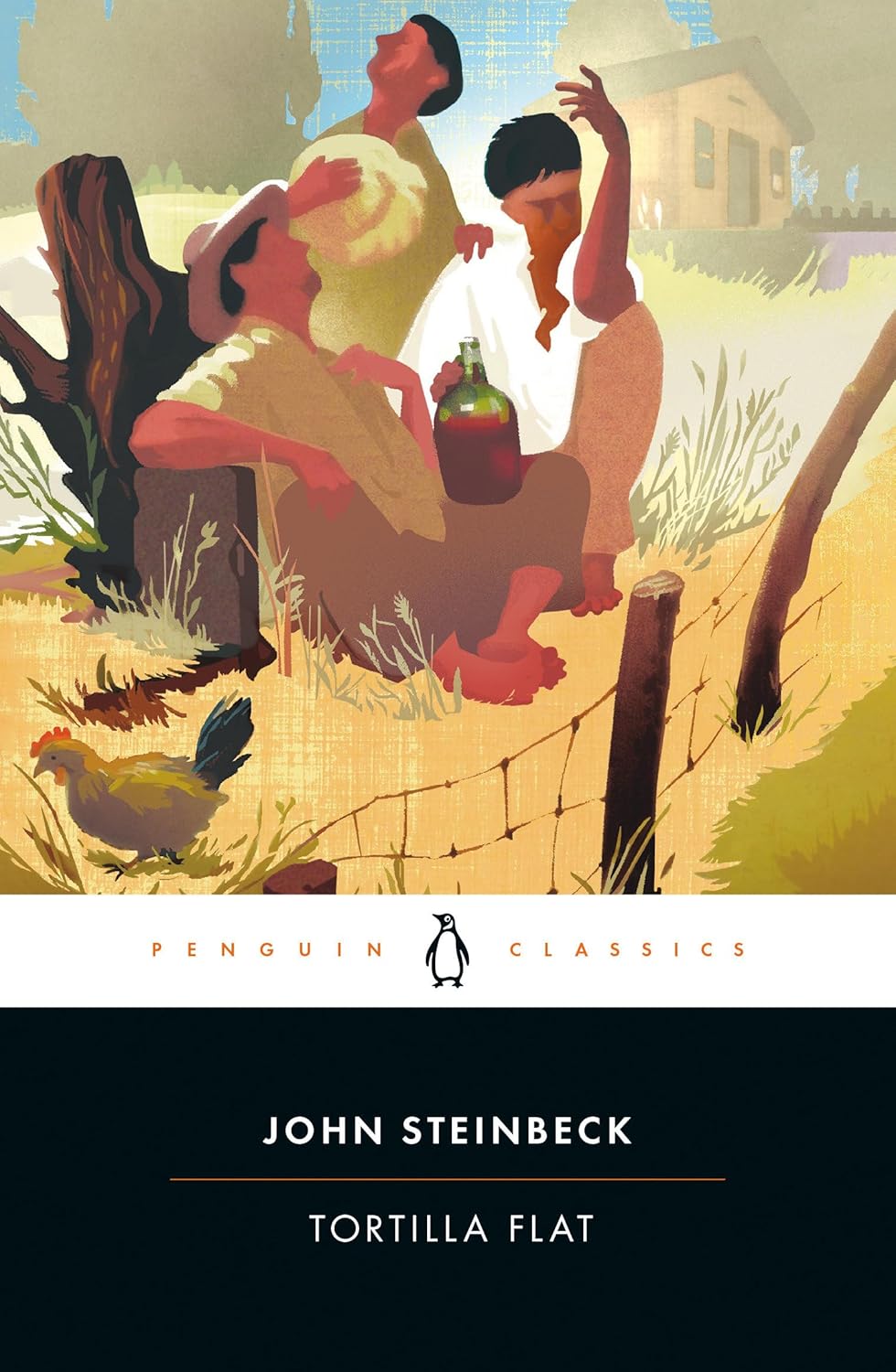
Tortilla Flat
Book Description
Amidst the sun-soaked hills of Monterey, a band of lovable misfits navigates the tumult of friendship, love, and betrayal. In the vibrant community of Tortilla Flat, where wine flows like water and loyalty is put to the ultimate test, bonds are forged and broken in the fight for dignity and belonging. Each twist and turn unveils the characters' struggles against poverty and the allure of adventure, revealing a world where honor doesn’t come easy. As the stakes escalate and dreams collide with reality, will the true meaning of friendship prevail when everything is on the line?
Quick Book Summary
"Tortilla Flat" by John Steinbeck paints a vivid portrait of a group of paisanos—men of mixed Mexican and European descent—living on the edge of society in post-World War I Monterey, California. The story centers on Danny and his band of friends who, though poor and often misguided, create a world rich in camaraderie and mischief after Danny unexpectedly inherits two modest houses. Through adventures involving wine, romance, and petty theft, Steinbeck explores the complexities of their relationships. Despite frequent conflicts and betrayals, the friends share an unwavering bond. The novel weaves humor and tragedy to illuminate themes of loyalty, honor, and the search for belonging, while questioning societal conventions and the true nature of charity.
Summary of Key Ideas
Table of Contents
Friendship and Loyalty Among Outsiders
Set in the diverse hills of Monterey, "Tortilla Flat" introduces readers to Danny, a paisano recently returned from the army. He is surprised to inherit two small houses, a rare windfall among his impoverished peers. This inheritance draws in longtime friends—Pilón, Pablo, Jesus Maria, and others—each with their quirks and flaws. They soon form a communal household, united by a loose sense of brotherhood and a shared love of wine, which frequently leads to misadventures and moral ambiguity.
The Tension Between Freedom and Responsibility
The bonds among Danny and his friends are tested by their continual struggles for survival. Though penniless and reliant on petty crime, they exhibit a fierce loyalty to one another, celebrating shared victories and comforting each other during setbacks. Their acts of generosity, whether motivated by genuine kindness or self-interest, blur the lines between charity and self-indulgence. Steinbeck juxtaposes their ragtag code of honor against the more rigid morality of mainstream society, highlighting the complexities of friendship in the face of poverty and hardship.
Poverty, Survival, and Dignity
As the friends navigate Monterey’s social landscape, their escapades oscillate between comedic and poignant. From attempting to help a destitute widow to embarking on doomed treasure hunts, their actions are guided by a mix of superstition, curiosity, and genuine affection. However, temptations—especially wine and fleeting romances—often undermine their good intentions, revealing the tension between personal freedom and the responsibilities inherent in maintaining community ties.
The Satire of Heroism and Morality
Steinbeck infuses the narrative with satire, parodying classic tales of knights and quests. The paisanos’ misdeeds are described with mock-heroic language, casting their petty thefts and drunken wanderings as grand adventures. In doing so, the novel both celebrates and gently mocks its protagonists, suggesting that heroism and dignity can exist outside conventional standards. The flawed nobility of Danny’s group questions what it means to be honorable in a world that often offers few opportunities for its outcasts.
The Search for Belonging and Home
Inevitably, the fragile equilibrium among the friends begins to unravel as personal desires clash and ambitions wane. Danny himself grows restless, torn between his yearning for independence and his obligations as the group’s nominal leader. A sense of loss and nostalgia suffuses the story’s conclusion, marking the dissolution of their utopian camaraderie. In the end, "Tortilla Flat" is less a tale of great events than an exploration of universal longings for home, acceptance, and the enduring importance of human connection.
Download This Summary
Get a free PDF of this summary instantly — no email required.





